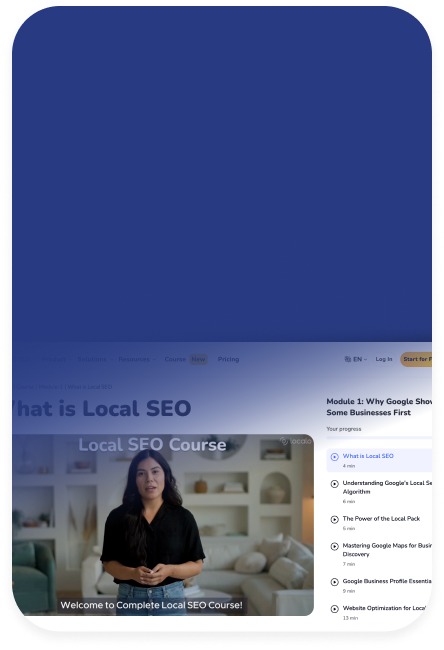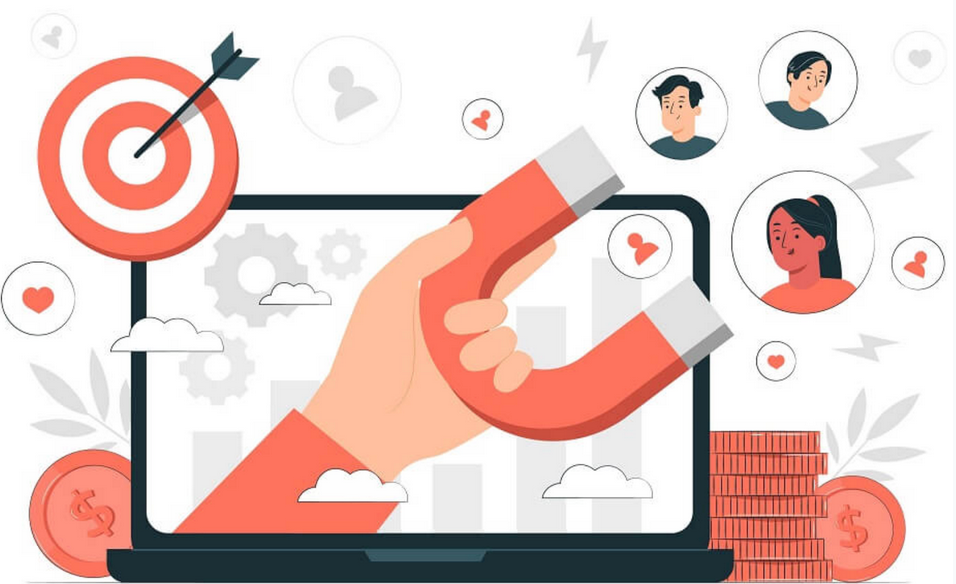
Ready to get more customers calling?
Take FREE Local SEO Course
Available now in English
Lead Generation - is the process of identifying and attracting potential customers (leads) to a company to convert them into buyers. This process involves a variety of marketing strategies and tactics to generate interest in the company’s products or services and encourage potential customers to take further action, such as signing up for a newsletter, downloading educational material, or filling out a contact form.

What is a lead?
A lead is an individual or organisation that has expressed an interest in a company’s offering. It could be someone who has left their contact details in exchange for something of value (e.g., an ebook or webinar), allowing the company to further contact and build a relationship
Why is it worth generating leads?
Lead generation strategy is key to business growth because:
- Increases the potential customer base: Regular lead generation allows you to continually expand the audience that may be interested in your company’s products or services.
- Allows personalisation of communication: By having information about leads, the company can tailor its marketing messages to the specific needs and preferences of potential customers, which increases the effectiveness of its activities.
- Improves ROI: The effective lead scoring and their conversion into customers can significantly increase the return on investment of marketing activities.
- Helps measure effectiveness: The lead generation process enables you to track which channels and tactics are most effective, allowing you to optimise your marketing strategies.
Types of potential leads
Leads can be classified based on various criteria, such as:
- Warm lead: A person who has shown a clear interest in the offer and is close to making a purchase decision.
- Cold lead: A person who has minimal or no previous interaction with the company and its offering but has been identified as a potential customer.
- Marketing Qualified Lead (MQL): A lead meeting specific criteria and ready to be passed on to sales.
- Sales Qualified Lead (SQL- Sales Qualified Lead): A lead that has already been thoroughly vetted by the sales team as ready to start the buying process.
Channels of lead generation
The most popular channels in the lead generation process include:
- Content Marketing - creating and distributing valuable, relevant content that attracts potential customers. Content can be blogs, ebooks, white papers, infographics, videos, or podcasts.
- Social Media: Social media platforms allow you to interact with a broad audience. By posting regularly, running advertising campaigns, and engaging in conversations, companies can build relationships with followers that can turn into leads.
- Email Marketing - is a direct way to communicate with potential and existing customers. Email campaigns can send personalised offers, newsletters, product updates and other information that can encourage recipients to act further.
- SEO (Search Engine Optimisation) - good SEO increases the visibility of a website, attracting organic traffic that can be converted into leads.
- Online Advertising (PPC) - paid advertising on search engines (e.g., Google Ads) and social media platforms (e.g., Facebook Ads) allows you to reach a large audience of potential customers quickly.
- Events and Webinars - organising events, conferences, and webinars is an excellent way to build relationships with potential customers.
- Networking - direct relationships and networking are among the most effective ways to generate leads.
- Referral Marketing - referral programmes, where existing customers recommend a company’s products or services to their friends, are also an effective way to generate leads, which increases the chances of acquiring new customers.
- Inbound Marketing - various methods such as SEO, content marketing, social media marketing, and more that work together to generate sales leads for a company.
Summary
Lead generation is a key process in marketing that involves identifying and attracting potential customers interested in a company’s products or services. It uses a variety of channels, such as content marketing, social media, email marketing and SEO, to effectively build a database of potential customers. Effective lead generation enables not only increased sales, but also the building of long-term relationships with customers, which translates into increased business value for the company.
![What is Lead Generation - Definition [Marketing Dictionary]](/assets/img/dictionary-background.webp)
